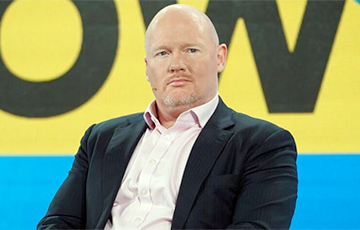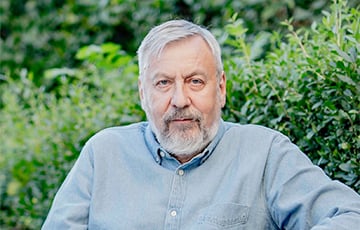Putin's Catastrophic Defeat
1- Peter Dickinson, Atlantic Council
- 19.06.2025, 11:34
- 9,740

The steps for doing so are no secret.
As G7 leaders attended a summit in Canada, Russia subjected the Ukrainian capital to one of the largest bombing raids since the invasion began more than three years ago. The overnight Russian attack on Kiev involved hundreds of drones and missiles targeting residential neighborhoods across the city. At least 27 civilians were killed, many injured.
While this latest strike on Kiev was by no means unprecedented in a war characterized by frequent Russian attacks on Ukrainian civilians, the timing was hardly coincidental. Like a mafioso ordering elaborate assassinations to transmit coded messages, Putin has repeatedly staged major bombings of Ukraine during international summits and meetings of Western leaders.
For example, Russia bombed Kiev, Odessa and other Ukrainian cities on the eve of the 2023 NATO summit. It also launched a targeted missile strike on Ukraine's largest children's hospital as NATO leaders prepared to meet in Washington last summer.
Massive air strikes have also been carried out during high-profile visits by international dignitaries. In the spring of 2022, Russia launched an airstrike on Kiev when UN Secretary General António Guterres was in the Ukrainian capital. At the time, Ukrainian President Vladimir Zelensky said the attack was a deliberate attempt by the Kremlin to "humiliate" the UN. Two years later, Russia heavily bombed Odessa, a major Ukrainian Black Sea port, during a visit to the city by Greek Prime Minister Kyriakos Mitsotakis.
The massive shelling of Kiev and other Ukrainian cities during this week's G7 summit is the latest example of Putin's predilection for sending missile-laden messages. In this case, his message could hardly be clearer: Russia does not want peace. On the contrary, Moscow is feeling increasingly confident about growing signs of Western weakness and more confident than ever about its victory in Ukraine.
Russia's rejection of U.S.-led peace efforts is equally evident in the diplomatic arena. While Ukraine agreed more than three months ago to U.S. President Donald Trump's call for an unconditional ceasefire, Russia has so far refused to follow suit. Instead, the Kremlin has employed blatant stalling tactics, creating a series of obstacles designed to derail any meaningful progress toward peace. At one point, Putin even claimed that the Ukrainian authorities lacked sufficient legitimacy to negotiate a settlement and suggested that the country be placed under interim UN administration.
The recent resumption of bilateral talks between Moscow and Kiev was another confirmation of Russia's commitment to the continuation of the war. Putin personally initiated the talks, but then chose not to participate and sent a low-level delegation instead. In the two meetings since then, Russian officials have presented a list of cease-fire terms that look like a call for Kiev's complete surrender.
The Kremlin's demands include the withdrawal of Ukrainian troops from four partially occupied regions of Ukraine that the Russian army has so far failed to fully occupy. This means handing over dozens of cities and towns to Russian rule and condemning millions of Ukrainians to the horrors of indefinite Russian occupation.
Moscow also wants to ban Ukraine from participating in any international alliances and bilateral security partnerships, as well as impose strict limits on the size of the Ukrainian army and the categories of weapons it is allowed to possess. In recent days, Russian Deputy Foreign Minister Alexander Grushko has emphasized that Moscow insists on Ukraine's complete disarmament, calling on the country to destroy all Western weapons supplied from 2022.
Putin's punitive peace terms are not limited to sweeping territorial concessions and harsh military restrictions. The Kremlin also expects Ukraine to grant official status to the Russian language, restore legal privileges to the Russian Orthodox Church, rewrite Ukrainian history to conform to Russian imperial propaganda, and ban any Ukrainian political parties that Moscow deems "nationalist."
The Kremlin's negotiating position assumes that postwar Ukraine will be divided, disarmed, isolated on the international stage, and deeply Russified. If these conditions are imposed, Russia will reassert its dominance over Ukraine and Ukrainian statehood will be fatally undermined. In other words, Putin wants Ukraine - but without Ukrainians.
Donald Trump's talk of peace through strength generated considerable optimism in the early months of 2025, but it is now time to recognize that it was largely based on wishful thinking. Since Trump has returned to the White House, the Russians have greatly intensified their air war against civilians in Ukraine. On the battlefield, Putin's forces are deploying the initial phase of what promises to develop into a massive summer offensive. Meanwhile, Kremlin officials at the negotiating table continue to make maximalist demands that no Ukrainian government can accept. This does not sound like the behavior of a country seeking peace.
In both words and deeds, Putin makes it clear that he is not interested in ending his invasion and remains determined to see Ukraine completely subjugated. This uncompromising stance will not change until Western leaders convince Putin that the most likely alternative to a negotiated peace is not Russia's historic triumph but its catastrophic defeat.
The steps necessary to bring about such a change and create the conditions for ending the war are no secret. Sanctions against Russia must be tightened and expanded to deprive the Kremlin's war machine of funding and weaken the Putin regime's internal foundations. Countries that currently help Moscow circumvent international sanctions should be targeted more forcefully. In parallel, Western military aid to Ukraine should be dramatically increased, with an emphasis on long-range weapons and funding for a rapidly growing domestic defense industry.
This will require political will, which is now woefully lacking. It would also come at a high cost. Indeed, Trump, speaking at the G7 summit this week, chose to reject new sanctions, saying that "they will cost us too much." Such logic is dangerously short-sighted. Trump and other G7 leaders must urgently realize that allowing Putin to succeed in Ukraine will then cost many times more to stop him.
Peter Dickinson, Atlantic Council











